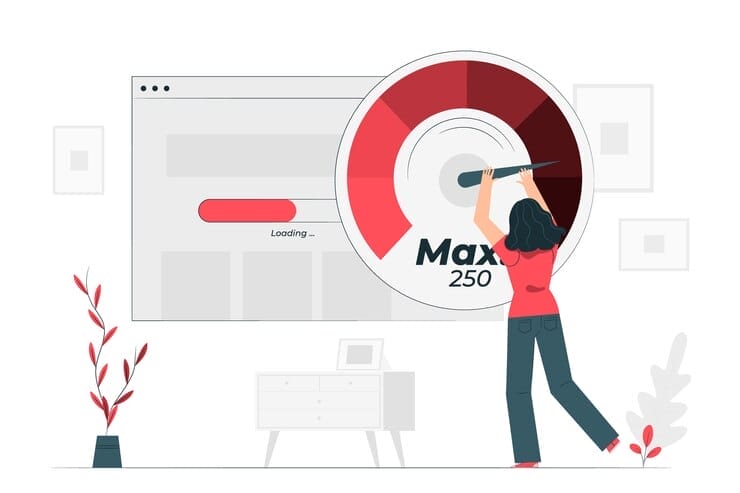Market segmentation helps businesses target the right customers, improve messaging, optimize resources, boost profits, and build lasting customer loyalty.
There are several benefits of market segmentation available to businesses that know how to apply it. From identifying your target audience to formulating effective marketing strategies to boosting conversion rates and making sales, the list goes on.
BUT…
If you are a newbie to market segmentation, you want to read my article on what market segmentation means and the five types of market segmentation first.
These articles would give you a good grasp on market segmentation – what it means, its types, its importance to a business, and how to apply it.
With that being said, let us get down to the top benefits of market segmentation for your brand.
10 Benefits Of Market Segmentation For a Business
1. Identify your Target Market

Market clarity and focus is one of the obvious benefits of market segmentation.
Every product/service meets the needs of a particular set of people in the society, and identifying who and where these people are is what market segmentation does.
Hence, rather than wasting limited marketing resources and time promoting your products/service to every Dick and Harry willing to listen, market segmentation allows you to identify who needs your goods and where they are.
Using the example I gave in five types of market segmentation, by segmenting its market, a snowmobile company knows that there is no chance for its business to level up in a hot country like Mali.
Applying geographical market segmentation, this company identifies its ideal customer as someone living in a cold country like Germany. With this information, the company saves resources and efforts that would have been wasted advertising its products in Mali.
Now it can apply these marketing funds to reach out to a more promising and rewarding target market in Germany.
2. Understand what your market wants and give it to them.

Market segmentation not only tells you who your market is but what they want.
In helping brands identify their target customer, market segmentation breaks down the market into sub-market sects based on certain factors like similar attributes, character, lifestyle, habits, needs, desires, etc.
As a result, it becomes easy for a company to understand the pain points of the various groups within its overall target market and design a way to solve their problems, thus increasing its sales and profits in the process.
To explain using an example, imagine a cereal company has just launched a branch in India.
Realizing it is not making sales, the company’s marketing team carries out a psychographic market segmentation which reveals that people are not buying the cereal because of its foreign, unfamiliar taste.
As opposed to intensifying the promotions or even packing up, the brand decides to manufacture cereals flavored with popular Indian spices its target customers are familiar with and love – everyone is happy.
3. Craft effective marketing strategies

If the cereal company intensified promotions of its old cereal in the hopes that someday it would convert, what would happen is that the brand would keep wasting limited marketing resources on the wrong marketing strategy, although targeting the right market.
However, by applying market segmentation, the company was able to discover why the locals were not purchasing its product and what it could do to redeem the situation.
Going back to its board, its marketing team crafted an effective marketing strategy – produce Indian spices flavored cereal that would appeal to the appetites of the target market.
4. Formulate the right brand message
Saying the right thing to the right customer is part of the benefits of market segmentation.
A company with a target market consisting of diverse groups needs market segmentation to efficiently tailor its marketing message to suit the needs of the different sub-markets.
A skincare brand producing skin products for males and females would need to apply market segmentation to shape its message to appeal to the unique preferences/skin needs of its male and female market.
A mobile company with a large market base; persons from different societal classes, age groups, gender, tech abilities, etc., would need market segmentation to customize sales messages that appeal to the unique preferences of each group. (What a techie looks out for in a gadget commercial will differ from what a non-techie looks out for).
5. Increase in profits

No company is formed to make losses.
Increase in conversion rate and ultimately in profit is one of the spill-over benefits of market segmentation – I call it a spillover benefit because it comes with the package whether it is included in the marketing strategy.
A business that knows its customers and what they need per time would find it easy to maximize limited marketing resources while making profits, which is the aim of every for-profit company.
6. Customer loyalty

Knowing a target market, their current needs, and how to meet them makes it easy to retain them as customers.
Being able to target the right audience, manufacture the right product, employ the right marketing tactics, and make the right product improvement, all stemming from your market’s pain points or desires makes customer retention an easy feat for your brand and induces clients loyalty.
This is because people, you and I included, tend to be loyal to a brand that knows just what they want and shows that it wants to meet their needs and values their opinions.
7. Develop the perfect product

With market segmentation, a business can focus its limited resources on producing only what its target market would be interested in.
Psychographic segmentation, one of the types of market segmentation that explains WHY an item/service is purchased, is useful for this.
With this segmentation, you can identify the current needs of your market, what they expect from the product/service your company is into, and the lapses of your competitors.
Armed with this information, you can direct your production funds into making products or services that would meet these needs.
Using another example mentioned in what market segmentation actually means, imagine a fuel company that owns several gas stations across the country.
Noticing a steady drop in sales, the company carries out a need segmentation which reveals that the hike in gas is the culprit behind the low sales.
It also discovers that the majority of its customers are now using electric cars, which are cheaper to maintain than gas-fueled ones.
To meet this new need, the company decides to establish charging stations, as opposed to building more fuel stations or even cutting down its fuel price.
In so doing, it can meet its market’s current needs, stay relevant, and seize the opportunity for business growth and expansion, which is also part of the spillover benefits of market segmentation.
8. Growing in the right direction

Market segmentation prevents amoebic growth.
Human needs are constantly changing.
A market that purchased desktops today may desire laptops tomorrow.
Hence, any company that wants to grow and expand properly needs to always be in tune with the relevant needs of the target market.
Still using the example of the fuel company, by choosing to establish charging stations rather than fuel stations, it not only meets the current needs of its market but has also seized the opportunity to launch a new product and expand its business.
9. allocate resources effectively

Benefits of market segmentation includes a proper utilization of one’s marketing resources.
As for-profit businesses do not have unlimited marketing funds, these organizations are constantly trying to figure out ways to effectively maximize their limited resources to produce the best results, which is where market segmentation comes in.
Because market segmentation provides information on who, what, where, and how of the target audience, a business can draw up successful marketing strategies that will draw in its target market.
With the right strategies, it becomes easy to tailor available marketing resources effectively.
10. become customer-centered

Happy customers equals a happy business.
A customer-centered company focuses on staying relevant to its clients by meeting their current needs. Such a brand not only finds it easy to retain happy customers but also to attract new ones.
But for this to be achieved, the business needs to understand its market, what will make them shy away from its product, and what will make them wake up at 4 am to queue for it.
Properly applied, market segmentation enables your brand to put the needs of your market at the core of whatever it does.
This enables it offer top-notch customer service at all times and stay focused on the needs of those the business was created to meet.
FAQs
What is market segmentation?
Market segmentation is the process of dividing a broad market into smaller groups of consumers with similar characteristics, needs, or behaviors so that a business can tailor its products and marketing to each group
How does segmentation improve marketing messages?
By grouping customers with similar preferences, businesses can tailor messaging that resonates specifically with each group, making marketing more relevant and impactful.
What types of segmentation do businesses commonly use?
Typical segmentation types include demographic (age, gender), geographic (location), psychographic (lifestyle), and behavioral (purchase behavior) grouping.
Final Thoughts
I could go on about several other benefits of market segmentation and wear you out eventually,
However, I decided telling you about the top 10 benefits would be better – less can be more after all.
In a world where companies are folding up due to their inability to keep up with the pace at which market needs are evolving, market segmentation is a powerful weapon in the arsenal of any business that wants to remain open and material to its market.








